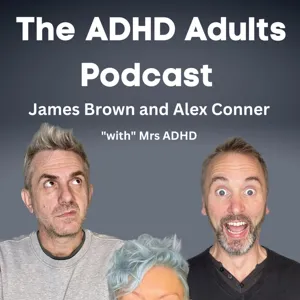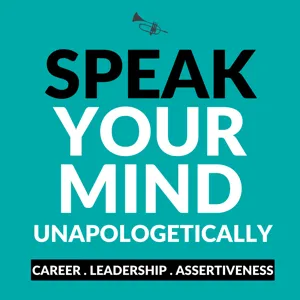Podcast Summary
Cognitive endurance as a muscle that can be trained: Students from low-income backgrounds may tire more easily during mentally demanding tasks, but cognitive endurance can be strengthened through targeted training, leading to improved educational outcomes and mental agility.
Cognitive endurance, the ability to sustain focused mental activity for extended periods, can be thought of as a muscle that can be strengthened. A study conducted by economists Christina Brown, Supreet Kaur, Geeta Kingdon, and Heather Scofield found that students from low-income backgrounds exhibit cognitive fatigue more quickly than their high-income peers. However, the researchers argue that cognitive endurance is a form of human capital that can be built up through training. The study involved elementary school students in India who were randomly assigned to conditions, with one group receiving intensive cognitive training through math problems on tablets, and the other group serving as a control. The cognitive endurance training involved increasing difficulty levels as the students improved. While not explicitly stated as such, the mental imagery suggests that this process is similar to physical muscle training. These findings imply that anyone can work to improve their cognitive endurance, potentially leading to better educational outcomes and overall mental agility.
Non-academic games can build cognitive endurance: Study shows that focus-requiring non-academic games can enhance cognitive endurance similar to academic tasks, and addressing socioeconomic challenges is crucial for academic success.
The ability to focus and engage in cognitively challenging tasks for extended periods is crucial for academic success, and this skill can be developed through various means, not just academic ones. The study discussed in the podcast found that non-academic games, which require focus, commitment, and skill, can help build cognitive endurance similarly to academic tasks. This finding aligns with the idea that extracurricular activities, such as playing a musical instrument or participating in sports, offer benefits beyond their primary function. Moreover, the study highlights the importance of addressing the cognitive load that comes with poverty, which can negatively impact cognitive function and academic performance. The authors suggest that schools can play a role in helping students build cognitive endurance, but the quality of education can vary greatly depending on the socioeconomic background of the students. In essence, the study emphasizes the importance of developing cognitive endurance through various means, and it underscores the need to address the unique challenges that students from disadvantaged backgrounds face in their academic journey.
Understanding the true nature of cognitive endurance: Cognitive endurance isn't an energy source that gets depleted, but feelings of mental fatigue serve as signals to rest and recover, and it's a skill that can be developed through consistent effort and practice.
Cognitive endurance, unlike a muscle, is not an actual energy source that gets depleted. Instead, feelings of mental fatigue serve as signals that we've expended significant intention and energy on a task, and it might be beneficial to rest and recover before engaging in another activity. Rick Powers, the distinguished golfer, exemplified this concept when he won his match but appeared drained of both physical and mental energy. The complexity of cognitive endurance suggests it may be more akin to a skill or preference that can be developed through consistent effort and practice. Understanding its true nature can help us approach its enhancement more effectively.
Cognitive fatigue signals even when we're not as depleted as we think: Our minds send signals of cognitive fatigue to conserve energy, not necessarily because of actual depletion
Our minds can send signals of cognitive fatigue even when we're not as depleted as we think. This was observed in a study conducted by a graduate student named Arai at Columbia University around 1912. She trained herself to do mentally taxing mental math problems without using paper or pencil and found that her performance peaked early and then plateaued, with a slight decline towards the end. Despite feeling exhausted by hour 12, her actual cognitive performance remained relatively consistent. Arai concluded that cognitive fatigue shares similarities with physical fatigue, but a more accurate interpretation is that our minds are signaling us to conserve energy, possibly for unexpected challenges or emergencies.
Emotions as Signals of Potential Issues: Understanding emotions as signals can help us make informed decisions, optimize energy and focus, and avoid major problems. Opportunity cost is a useful lens for viewing feelings of fatigue or ego depletion.
Our emotions and feelings, such as hunger, fatigue, and even self-control, can be seen as signals or "fire alarms" warning us of potential issues before they become major problems. For instance, feeling hungry doesn't mean we're about to collapse, but it's a good idea to eat. Similarly, feeling fatigued might indicate we've spent too much mental energy on a task and should consider shifting focus to something else. The ego depletion theory in psychology, which suggests self-control is like a muscle that gets tired with use, is an example of this idea. However, recent research suggests that changes in motivation and attention, rather than depleted glucose levels, may be the root cause of cognitive fatigue. Opportunity cost, a concept from economics, is another powerful idea related to this. It refers to the potential benefit lost when one alternative is chosen over another. Psychologists don't often discuss opportunity cost, but it can be a useful lens through which to view feelings of fatigue or ego depletion. By understanding these signals and considering opportunity costs, we can make more informed decisions and optimize our energy and focus.
Understanding the Concept of Opportunity Cost: Every resource comes with an opportunity cost, influencing our decisions and behaviors, from time and money to brainpower. The brain's energy limits can lead to feelings of fatigue, making opportunity cost crucial in managing resources effectively.
Every dollar, hour, or brain cell you spend on something comes with an opportunity cost – the value of what you could have gained by spending that resource elsewhere. Opportunity cost is a powerful concept that goes beyond finance and can influence our behavior in various ways. For instance, spending time on a guilty pleasure, like watching romcoms, means you can't use that time for something more productive. Furthermore, the brain's use of executive function can lead to feelings of fatigue, which some researchers once believed was due to the brain being a "muscle" that gets depleted. However, the brain is not a muscle but a chemical computer with electrochemical processes. Instead, it's the brain's limited resources, such as glucose, that may contribute to feelings of fatigue. Understanding opportunity cost can help us make more informed decisions and be more mindful of how we allocate our resources.
Impact of mental and physical states on decision-making and cognitive processes: Understanding the role of mental and physical states in decision-making and performance is crucial, as simple things like eating a sandwich or receiving a gift can boost mental performance when it's declining.
Our mental and physical states significantly impact our decision-making and cognitive processes. The conversation touched upon the idea that even simple things like having a sandwich or receiving a gift can boost mental performance when it's declining. This is due to the signals our brains receive, assessing the worth and effort of a task. During mentally taxing activities, our brains may signal a need to switch focus or take a break. The discussion also highlighted the contrasting experiences of giving and receiving talks, with the speaker finding it energizing while the audience may find it exhausting. Overall, this conversation emphasizes the importance of understanding the role of our mental and physical states in our decision-making and performance.
Understanding emotions as signals for personal growth: Recognize emotions as valuable signals, but also evaluate their accuracy and become metacognitively sophisticated to make informed decisions.
Our emotions and feelings, including fatigue and boredom, can serve as valuable signals to help us determine if we should continue with a particular activity or explore other options. However, it's important to become more metacognitively sophisticated, which means being able to think about our own thinking and evaluating the accuracy of our emotions and feelings. This ability is unique to human beings and is considered a key aspect of personal development and growth. The speaker also mentioned the importance of recognizing the significance of various researchers, such as Soroku Haraguchi, who made groundbreaking contributions to understanding cognitive fatigue.
The Brain is an Organ with 60% Fat, Not a Muscle: The brain is an essential organ with a high fat content, responsible for complex functions, but it doesn't have muscles like other parts of the body.
The brain, despite having muscle-like qualities, is not a literal muscle. It's an organ that is the fattiest in the body, containing around 60% fat. While it can be trained and fatigued, it doesn't have muscles in the same way other parts of the body do. Angela also shared that she pushed her mental limits during her doctoral research, which included translating words and sentences between languages, but her meals were not necessarily sandwiches as Stephen assumed. Additionally, poverty can impede cognitive function, according to research by Sendhil Mullinathan and others. It's important to remember that cognitive exercises, such as those found on iPads, can be beneficial, but excessive use is not recommended. The Freakonomics Radio Network's No Stupid Questions podcast covers these topics and more, with a team of researchers, producers, and staff. Stay tuned for more insights on cognitive function and mental strength in the next episode.






